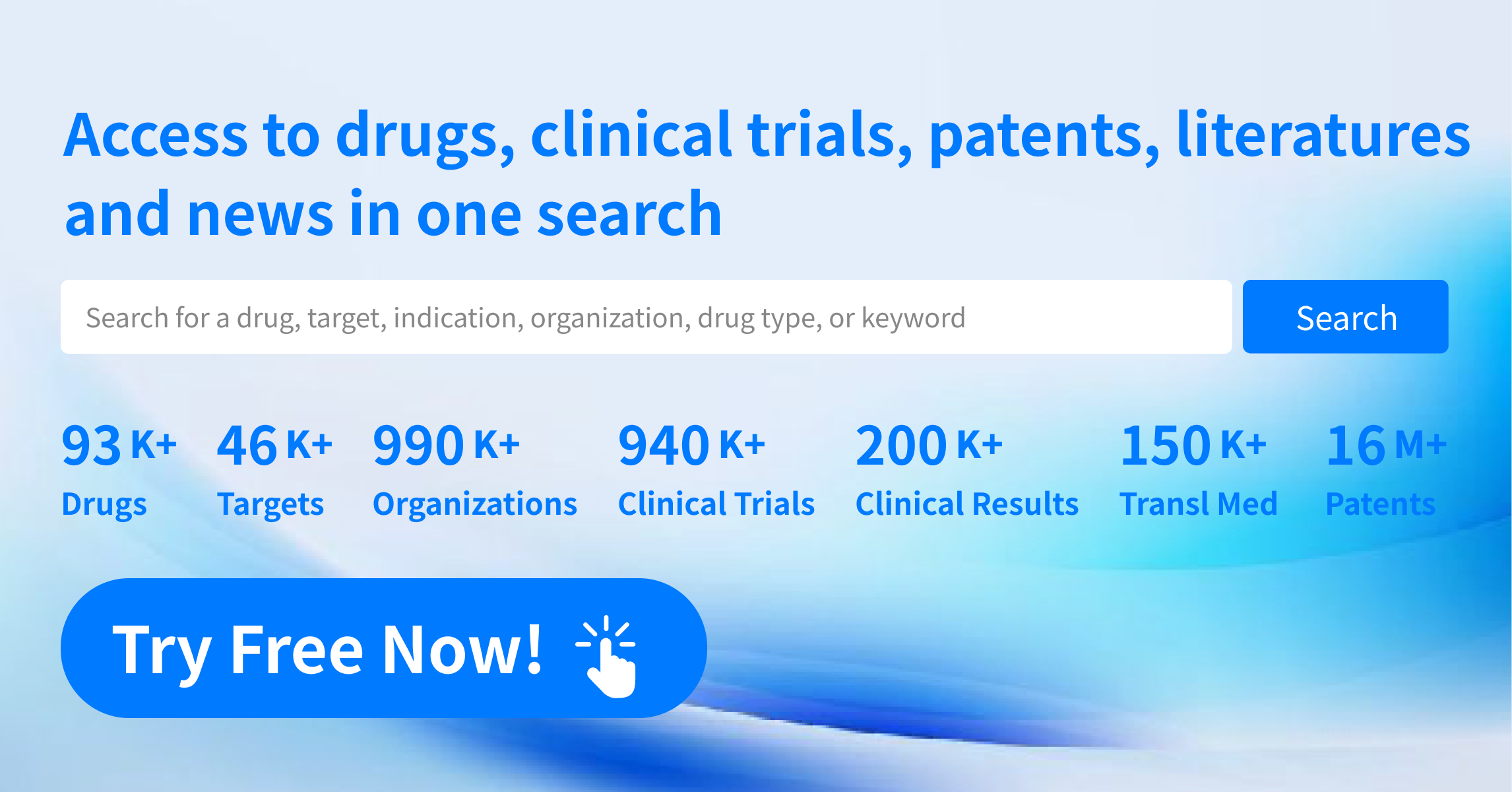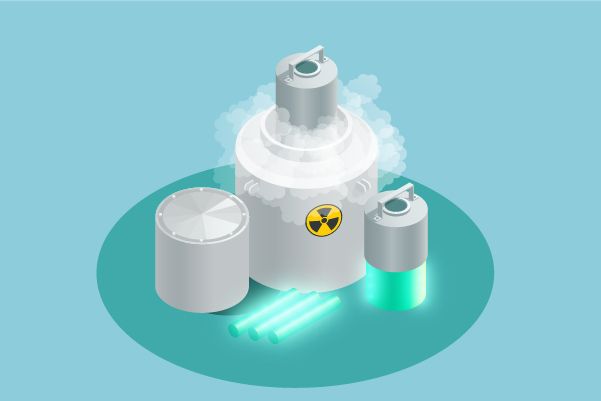Pharma Frontiers: Daily Digest of Global Pharmaceutical News – Aug 8
1.FDA Approves Servier's Breakthrough Therapy Voranigo, Doubling Survival Period Without Progression for Patients
On August 7, the US FDA announced its approval for the commercial release of Voranigo (vorasidenib) by Servier Pharmaceuticals for post-surgical treatment of adult and pediatric patients aged 12 and above with grade 2 astrocytoma or oligodendroglioma carrying susceptible IDH1 or IDH2 mutations. Voranigo is a "first-in-class" IDH1 and IDH2 inhibitor. The press release stated that this is the first systemic therapy for the above-mentioned patients that the FDA has approved. The efficacy of Voranigo was evaluated in a double-blind, placebo-controlled, pivotal phase 3 clinical trial called INDIGO, enrolling a total of 331 patients. Patients were randomized in a 1:1 ratio, receiving 40 mg of Voranigo or placebo orally once daily until disease progression or unacceptable toxicity. Patients randomized to receive placebo could switch to Voranigo after radiographic confirmation of disease progression. The primary efficacy outcomes were progression-free survival (PFS), as assessed by a blinded independent review committee, and time to next intervention (TTNI). Trial results showed that PFS for Voranigo and placebo groups were 27.7 months and 11.1 months, respectively. Voranigo reduced the risk of disease progression or death by 61% (HR=0.39, 95% CI: 0.27, 0.56, p<0.0001). In addition, the median TTNI for the Voranigo group had not been reached, while it was 17.8 months for the placebo group (HR=0.26; 95% CI: 0.15, 0.43, p<0.0001). The most common (≥15%) adverse reactions were fatigue, headache, COVID-19, musculoskeletal pain, diarrhea, nausea, and seizures. The most common grade 3 or 4 laboratory abnormalities (>2%) were elevated alanine aminotransferase, aspartate aminotransferase, gamma-glutamyl transferase, and neutropenia.
2.SanegeneBio Continues to Make Progress in Clinical Research of Two Small Nucleic Acid (siRNA) New Drugs
Recently, SanegeneBio continues to make clinical advancements with two small nucleic acid (siRNA) drugs in research. On August 6th, SanegeneBio announced that phase I clinical research for its siRNA drug SGB-9768 injection in China had successfully delivered its first dosage to a test participant at Shanghai Huashan Hospital. Just a few days prior, SanegeneBio and Innovent Biologics jointly announced the completion of the first human test for the Phase I clinical trial of siRNA drug SGB-3908. SanegeneBio was founded in 2021, dedicated to the development of novel small nucleic acid drugs based on RNA interference (RNAi) technology. To date, the company has received clinical approval for three RNAi drugs. In addition to the recently advanced siRNA therapies SGB-9768 targeting complement C3 protein and SGB-3908 targeting Angiotensinogen (AGT), another siRNA therapy SGB-3403 targeting hepatocytes PCSK9 has also entered the clinical stage.
SGB-9768 is a siRNA drug targeting complement C3 protein and is delivered to liver cells using the next-generation LEAD™ GalNAc technology. Through the RNAi mechanism, it suppresses C3 synthesis and thereby inhibits complement activation, holding potential for the treatment of complement-mediated kidney diseases.
SGB-3908 (codename of Innovent Biologics research: IBI3016) is a siRNA drug targeting Angiotensinogen (AGT) and is intended for the treatment of hypertension. Pre-clinical trials showed that SGB-3908 significantly lowering AGT protein levels and related biomarkers (ANG I, ANG II) in the sera of hypertensive crab-eating macaques, demonstrating clear antihypertensive effects with long-lasting impact, and no low blood pressure or other safety issues were observed. In December 2023, SanegeneBio and Innovent Biologics agreed to collaborate to advance the development of SGB-3908, with Innovent Biologics obtaining the option to develop, produce, and commercialize the drug in various regions in the future.
3.GSK's anti-PD-1 monoclonal antibody new drug has received approval for two more clinical trials in China
Recently, the China National Medical Products Administration Center for Drug Evaluation (CDE) officially announced that GlaxoSmithKline (GSK)'s dostarlimab injection has received the implied consent for two new clinical trials in China. The drug is intended for preoperative treatment in adult patients with locally advanced mismatch repair deficient (dMMR) and/or high microsatellite instability (MSI-H) colorectal cancer and sequential post-radio-chemotherapy treatment in adult patients with unresected locally advanced head and neck squamous cell carcinoma. Dostarlimab, an anti-PD-1 antibody, has previously been approved by the US FDA for many anti-tumor indications. In China, this is the product's second indication approval since its first clinical approval in July this year (for rectal cancer). Dostarlimab (trade name: Jemperli) is a programmed death receptor-1 (PD-1) blocking antibody, which can bind to the PD-1 receptor and block its interaction with PD-1 ligands PD-L1 and PD-L2. The product was first approved for accelerated approval by the FDA in April 2021 and has been approved for several different types of cancers, including dMMR recurrent or advanced endometrial cancer, dMMR or MSI-H primary recurrent or advanced endometrial cancer, and dMMR recurrent or advanced solid tumors. This time in China, GSK received approval for new clinical studies for both dMMR/MSI-H colorectal cancer and unresected head and neck squamous cell carcinomas. According to pipeline information disclosed on GSK's official website, for these two indications, Dostarlimab is at phase III clinical trials globally. The AZUR-2 study is a phase III clinical trial aiming to compare the efficacy and safety of dostarlimab monotherapy vs. standard of care in patients with resectable T4N0/III dMMR/MSI-H colorectal cancer who have not been previously treated. Clinical evidence indicates that in a variety of tumor types, neoadjuvant immunotherapy could further improve survival outcomes.
4.InSilico Medicine's oncology drug TEAD inhibitor ISM6331 approved for clinical trials in the U.S.
On August 7, InSilico Medicine, a clinical-stage biotech company driven by generative artificial intelligence, announced that its independently developed pan-TEAD inhibitor ISM6331 received Investigational New Drug (IND) approval from the U.S. FDA in July 2024 for the treatment of mesothelioma. This achievement follows the drug's orphan-drug designation for mesothelioma in June this year. According to the press release from InSilico Medicine, this approval brought the number of innovative molecules that have received clinical trial approval for InSilico to nine. Mesothelium is a thin layer of tissue that covers most internal organs and the cancer it can cause is known as mesothelioma, primarily caused by exposure to asbestos. ISM6331 is a potent non-covalent small molecule inhibitor with a novel molecular scaffold that targets the Transcriptional Enhanced Associate Domain (TEAD) family of proteins, key regulators of the Hippo pathway which play an important role in tumor progression, metastasis, cancer metabolism, immunity, and resistance. According to InSilico Medicine's press release, the development progress of ISM6331 was significantly accelerated with the help of artificial intelligence. Preclinical research showed that this product demonstrated broad-spectrum anti-tumor effects in multiple cell lines, low dose efficacy in animal models, and good safety and ADMET properties. Supported by encouraging preclinical data, ISM6331 was nominated as a preclinical candidate compound (PCC) in June 2023. InSilico Medicine is committed to advancing this project's clinical implementation and application to meet unmet clinical needs.
5.The world's first EB virus-related tumor mRNA therapeutic vaccine is about to enter clinical trials
On August 6, Weisijin Biomedical's independently developed "WGc-043 Injection" received approval for its new drug research application (IND) by the Drug Evaluation Center (CDE) of China National Medical Products Administration (NMPA) and was issued the "Notice of Approval for Drug Clinical Trial", enabling it to commence Phase I clinical trials. "WGc-043 Injection" is the first mRNA vaccine for treating EB virus-related tumors globally to have received IND approval in both China and the US. mRNA tumor therapeutic vaccines are among the significant breakthroughs in the domain of mRNA innovative medicine and tumor immunotherapy. Top international pharmaceutical companies including Merck (MSD), Moderna and BioNTech have all intense research and development activities in this field with varying degrees of progress. The IND approval received by Weisijin Biomedical's therapeutic vaccine pipeline "WGc-043 Injection" further validates its maturity in key mRNA technologies like delivery carriers and sequence designs, while also accelerating the commercialization process of the global high-efficiency, low-toxicity anti-tumor mRNA vaccines. WGc-043 mRNA vaccine was approved for IND in the US in May this year, with its indications approved in both China and the US being EB virus-positive tumors: firstly, it's applicable for adult patients with advanced solid tumors positive for EB virus after second-line systemic treatment; secondly, it’s suitable for adults with recurrent or refractory EB virus-positive hematological malignancies. Thus, WGc-043 provides a new option for mRNA immunotherapy for patients with end-stage EB virus-positive solid tumors and hematological malignancies.
6.Roche Invests Nearly $2 Billion in Alzheimer's Disease Gene Therapy
On August 7th, Sangamo Therapeutics announced that it has reached an authorization agreement with Genentech, a company under Roche, to develop intravenous gene therapy to treat neurodegenerative diseases, including Alzheimer's disease. Genentech has obtained the development rights to zinc finger protein-based epigenetic inhibitors that target MAPT genes encoding Tau proteins. Tau proteins play a crucial role in Alzheimer's disease and other tauopathies. In addition, Genentech has acquired the rights to use Sangamo's proprietary adeno-associated virus (AAV) capsid STAC-BBB. This AAV envelope has demonstrated robust blood-brain barrier (BBB) crossing abilities in non-human primate models. The development of novel treatments for Alzheimer's disease has seen significant breakthroughs in recent years. Leqembi (lecanemab) jointly developed by Weimai and Bohus Health, along with Kisunla (donanemab) developed by Lilly, has already obtained full FDA approval to treat early-stage Alzheimer's patients. Also, cellular and gene therapies have shown promising preliminary efficacy in treating Alzheimer's disease, although delivering a therapeutic gene beyond the blood-brain barrier that protects the brain remains a significant challenge. Sangamo's STAC-BBB has made significant strides in delivering transgenes for expression in brain tissue and is actually an AAV envelope discovered in vivo screening in macaque models. Compared with AAV9 envelop used for delivering transgenes into the central nervous system (CNS), STAC-BBB has increased the ability to drive the expression of transgenes in CNS neurons by 700 times. Moreover, STAC-BBB can drive high-level transgene expression in a wide variety of different CNS tissues.
7.Eisai invests $1.5 billion to develop molecular glue protein degradation therapy
On August 7, SEED Therapeutics announced a strategic research partnership with Eisai, aiming to discover, develop, and commercialize novel molecular glue protein degraders against several undisclosed neurodegenerative disease and tumor targets. The total cooperation amount could reach up to $1.5 billion. At the same time, the company announced the completion of the first part of their A-3 funding round, securing $24 million, led by Eisai. According to the cooperation agreement, SEED will lead the preclinical discovery activities of selected targets, including the selection of E3 ligases and discovery of appropriate molecular glues. Eisai will have exclusive rights to develop and commercialize the compounds produced from this cooperation. SEED is eligible to receive up to $1.5 billion in advance payments as well as preclinical, clinical, regulatory, and sales milestone payments. SEED's A-3 funding round is expected to further accelerate the clinical development of the company's proprietary programs in cancer and neurodegenerative diseases, expanding its targeted protein degradation platform and product pipeline. The company will advance its internally potential "best-in-class" oral RBM39 degraders, beginning phase 1 clinical trials for biomarker-driven cancer indications in 2025. SEED will also advance its internal Tau degrader project for the treatment of Alzheimer's disease, which is expected to undergo in vivo efficacy testing in 2025 and submit an IND application in 2026. SEED focuses on using engineered molecular glues to target previously undruggable targets. The company previously reached a research collaboration worth up to $800 million with Eli Lilly to develop innovative protein degradation therapies.
8.Collaborating to Develop Trispecific Antibodies, Daiichi Sankyo and Merck Extend Cooperation
On August 7, Daiichi Sankyo and Merck (MSD) announced the expansion of their existing global joint development and commercialization agreement, supplementing it with Merck's investigational therapy MK-6070 in addition to three other DXd antibody-drug conjugates currently under study. MK-6070 is a T-cell engager that targets DLL3, a Notch inhibitory ligand that is highly expressed in small cell lung cancer (SCLC) and other neuroendocrine tumors, and minimally expressed in normal tissues, making it a promising therapeutic target. MK-6070, a trispecific T-cell engager that targets DLL3, is currently being evaluated in Phase 1/2 clinical trials as a monotherapy for treating some late-stage cancer patients associated with DLL3 expression and in combination with the anti-PD-L1 therapy atezolizumab for certain SCLC patients. The US FDA has granted MK-6070 orphan drug designation for the treatment of SCLC. Merck had previously spent around $680 million to acquire Harpoon Therapeutics and its investigational therapy. The two companies plan to evaluate the combined effect of MK-6070 and the B7-H3 targeting antibody-drug conjugate ifinatamab deruxtecan in certain SCLC patients and explore other potential combination therapies. According to the terms of the agreement, Merck will receive a $170 million prepayment. The two companies will share the costs of research and development and commercialization worldwide, with Merck retaining exclusive rights in Japan.
How to obtain the latest research advancements in the field of biopharmaceuticals?
In the Synapse database, you can keep abreast of the latest research and development advances in drugs, targets, indications, organizations, etc., anywhere and anytime, on a daily or weekly basis. Click on the image below to embark on a brand new journey of drug discovery!




